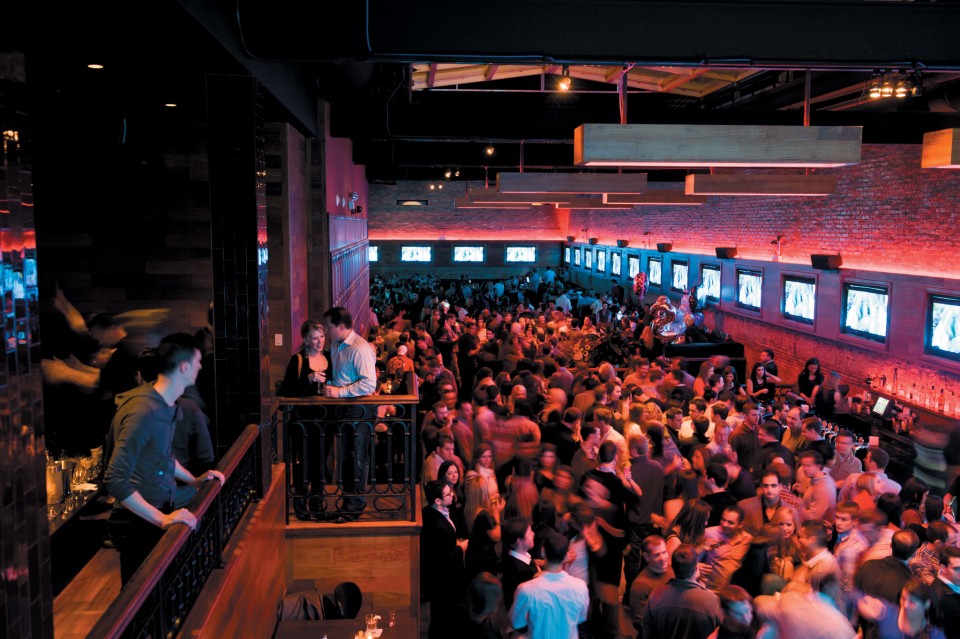
Oct 13, 2017
David Matthews and Tanveer Ali | DNAinfo | October 11, 2017
RIVER NORTH — It could be last call for more alcohol in River North.
The City Council voted Wednesday to prohibit new liquor licenses in much of the neighborhood long known for its nightlife.
Citing an “over-concentration” of bars in the area, the new law introduced by 42nd Ward Ald. Brendan Reilly seeks to prohibit new watering holes in wide swaths of River North.
The ordinance only applies to new bars that make most of their money off booze, not other businesses such as hotels, restaurants or music venues that also sell drinks. Existing River North bars will not be affected.
Reilly, who didn’t return messages seeking comment, for years has told neighbors he frowns on granting tavern licenses to new bars that he said attract drunken mischief to River North.
Lilia Chacon, a spokeswoman for the city’s Department of Business Affairs and Consumer Protection, said there already are moratoriums in the ward with regard to bars, liquor stores and late-night clubs. Any liquor licenses recently granted in the ward have gone to restaurants and other businesses with incidental drink sales, she said.
A new ordinance would make those restrictions more permanent in River North.
“There is a delicate balance between residential, business, hospitality and tourism objectives in our very dynamic neighborhood,” Mike Riordan, president of the River North Residents Association, said in an email. “We work extremely hard to advocate for quality of life issues and to collaborate with business owners so that we all thrive. ”
CONTINUE READING
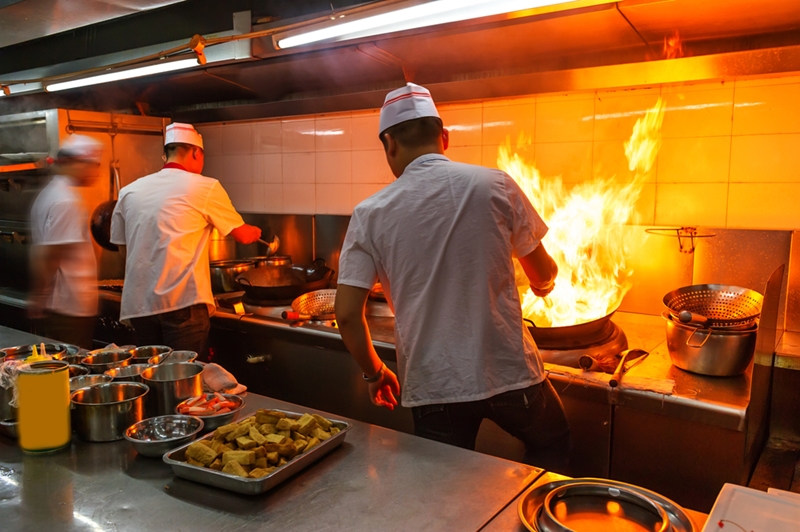
Oct 6, 2017
Brad Umansky | The Broker List | September 29, 2017
Are the restaurant and grocery industries a zero sum game? I believe so. Despite my desire to eat all day at different places, it is simply not possible for me or anyone else. As a result, any decision we make to consume food at one place means we are not eating at another place.
The good news for the food industry being a zero sum game is that it is also a game that everyone must play every day. You have to eat! That is why so many landlords love having food users as tenants because regardless of the economy, this industry is virtually guaranteed to capture consumers.
On the other hand, the bad news for the food industry being a zero sum game is that every food purveyor, including traditional grocery stores, specialty grocers, fast food restaurants, quick service restaurants, full service restaurants, farmer’s markets, food halls, etc. are ALL competing for their piece of the pie.
What does this mean for landlords and property owners?
CONTINUE READING
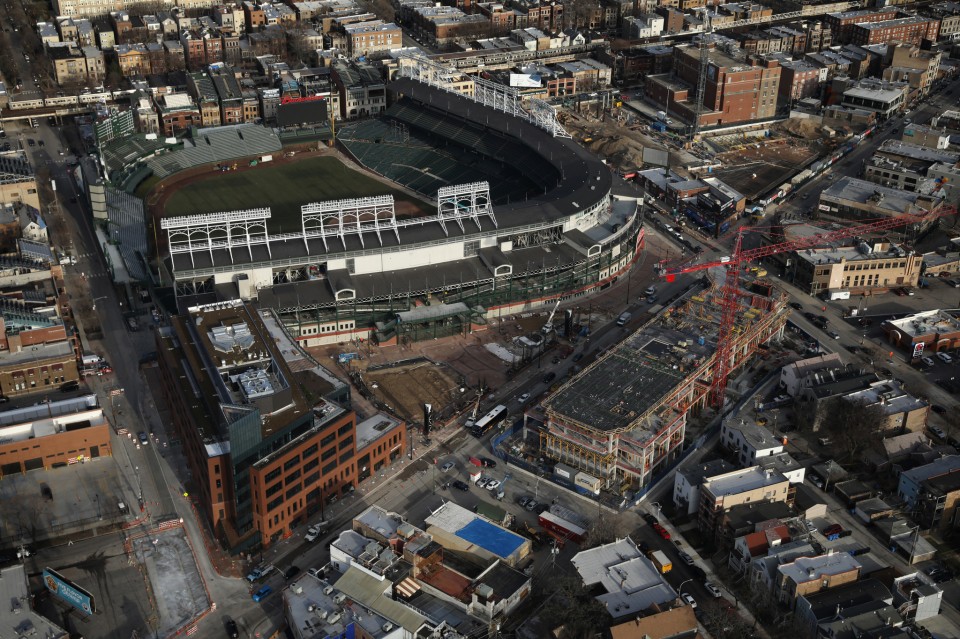
Sep 25, 2017
Tim Novak | Chicago Sun-Times| September 25, 2017
Welcome to Wrigleyville: Home of the world champion Cubs — and some of Chicago’s best deals on property taxes.
Take Casey Moran’s, one of the most popular bars in the booming neighborhood.
Two years ago, Cook County Assessor Joseph Berrios reclassified Casey Moran’s from commercial to residential property after its owner, Kevin Killerman, created a tiny apartment above the bar. That drastically cut Killerman’s property taxes by 60 percent, saving him more than $110,000 so far.
A block away, Berrios similarly has classified a two-story bar called Trace as residential property, even though a bartender there says there aren’t any apartments on the property. That’s saved its owners more than $17,000 in property taxes this year.
And the Ricketts family, owners of the Cubs and Wrigley Field, have saved hundreds of thousands of dollars in taxes on 10 apartment buildings known as Wrigley Rooftops. All are classified as residential property — even though their rooftop bleacher businesses generate far more revenue than their residences, records show.
Around Wrigley Field, bars and restaurants compete for customers. But when it comes to property taxes, they operate on an uneven playing field, a Chicago Sun-Times investigation has found.
Cook County is the only county in Illinois that taxes residences less than commercial property. That tax break is extended to thousands of buildings that include both businesses and apartments, resulting in lower tax bills for their owners — while forcing the rest of the county’s taxpayers to pay more.
CONTINUE READING
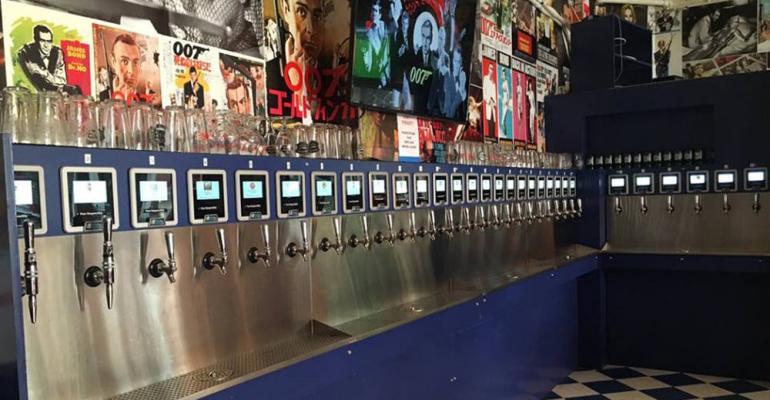
Sep 19, 2017
Liz Barrett | Restaurant Hospitality | September 11, 2017
Today’s consumer loves convenience and new experiences, which is exactly what a self-serve beverage system delivers.
Access to a variety of alcoholic beverages when and where guests want them minus the wait time seems like a win-win for everyone. But is it right for your restaurant?
The average self-serve beverage system works like a vending machine with a loadable card or wristband. Customers can either pre-pay, setting their own limit, or start a tab and pay at the end of their visit. A simple swipe of their wristband, or insert of their card, allows them to purchase beverages by the ounce — typically one, five or eight ounces at a time.
At JJ’s Wine Bar (above) in Franklin, Tenn., 28 different wines are available to self-pour by using a smart card. JJ’s co-owner Lisa Judd said in addition to trying wines they may not otherwise order from a wine list, guests using the self-serve system can take their time reading the wine descriptions and labels before making a decision.
“Guests can taste a very expensive wine, without committing to the entire bottle,” Judd said. “We’re able to offer three pour sizes: one ounce, five ounce and eight ounce; you won’t find that on most wine lists.”
CONTINUE READING
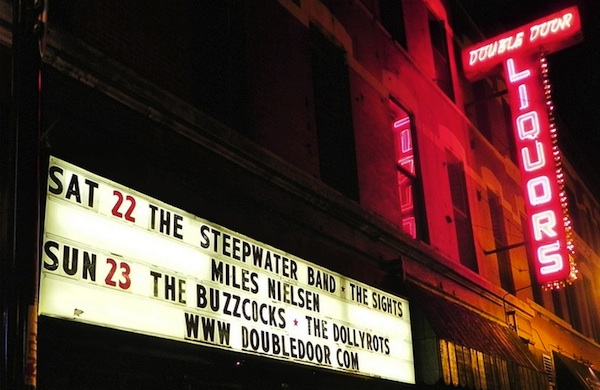
Sep 12, 2017
Fran Spielman | Chicago Sun-Times | September 11, 2017
The City Council’s Zoning Committee on Monday down-zoned the property that once housed the now-shuttered Double Door music venue in Wicker Park over the property owner’s strenuous objections.
Local Ald. Proco Joe Moreno (1st) used his iron-fisted control over zoning to muscle through a change that will strengthen his hand in determining the future of the property at 1572 N. Milwaukee.
“It’s a planning tool. We want the community to have a say. We don’t want anyone to lose money,” Moreno said after the vote.
“We don’t make zoning changes based on how much money people are going to make or lose. That’s for the market to decide — not me. What we want is a planning tool so we have a responsible business that contributes to the community. And I hope he makes a lot of money when he sells it.”
Moreno noted that the down-zoning approved Monday was not as drastic as the original version.
It would have gone from B3-2 to B1-1. Instead, it’ll be reduced to B2-2, giving the property owner a bit more leeway.
CONTINUE READING
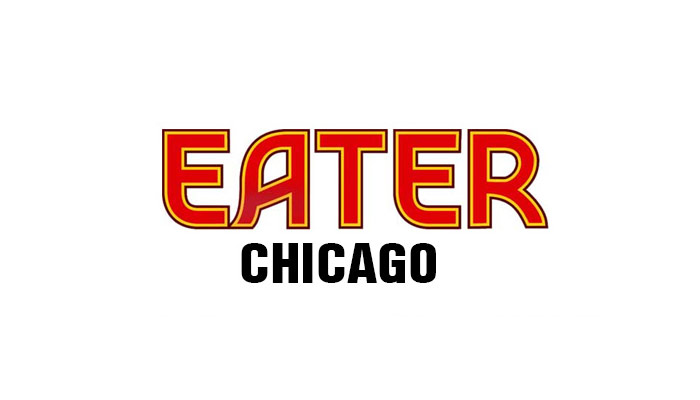
Sep 8, 2017
Daniel Gerzina & Ashok Selvam | Eater Chicago | September 7, 2017
More often than not, tipsters, readers, friends, and family of Eater have one question: Where should one eat right now? Restaurant obsessives want to know what’s new, what’s hot, which favorite chef just launched a sophomore effort. And while the Eater 38 is a crucial resource covering old standbys and neighborhood essentials across the city, it is not a chronicle of the “it” places of the moment. Thus, the staff offers the Eater Heatmap, which will change on a regular basis to always highlight where the crowds are flocking to at the moment.
Labor Day has come and gone so summer’s unofficially over in Chicago, but new restaurants continue to sizzle around the city. The September Heatmap update features five new entries: world-renowned Italian import Bonci Pizzeria, jamming Jewish deli Steingold’s, LA Japanese expansion Katana, NYC burrito specialist Dos Toros, and all-day swanky-yet-casual spot The Heritage Restaurant and Caviar Bar. Meanwhile, someone has to come off to make room, so Quiote exits after eight months on, Noyane as well as rooftop season sadly winds down, and Clever Rabbit, Nutella Cafe, and Ella Elli take bows too. Happy eating.
FULL LIST






